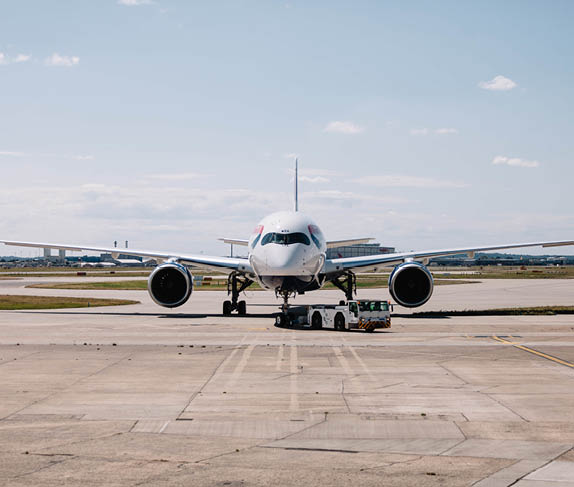Aviation Capital Group (ACG) has prevailed in the appeal filed by Olympic Airlines (Olympic) concerning the April 2012 trial judgment in ACG’s favour (see Airline Economics Issue 9 for the full story of the original judgment), a case that attracted considerable attention in the aircraft leasing industry.
The UK Court of Appeal decision dismissed Olympic’s appeal and upheld the trial court’s judgment that Olympic was bound by its acceptance of a leased aircraft and, going further than the trial court’s judgment, validated that ACG’s lease agreement was effective in itself to transfer to Olympic at delivery the risks for the condition of the aircraft. As a result, Olympic remains liable for the substantial judgment amounts assessed by the trial court. By upholding a lessee’s acceptance of a leased aircraft, the judgment highlights the importance of commercial certainty to all participants in the aircraft leasing industry.
In August 2008, Olympic, the now-defunct Greek state airline, accepted a Boeing 737-300 aircraft from ACG Acquisition XX LLC (ACG XX) after carrying out extensive pre-delivery inspections. It executed a Certificate of Acceptance confirming that the aircraft complied with the delivery conditions in all respects. Both the Malaysian and Greek aviation authorities issued certificates of airworthiness for the aircraft. Subsequently, a fault was discovered with a spoiler cable, and following further inspections other issues were identified. Olympic carried out work on the aircraft but failed to return it to service.
In early October 2009, Olympic entered a creditors’ special liquidation. Subsequently, ACG XX served termination and redelivery notices in respect of the aircraft. At a hearing in April 2010 Olympic assured the court it would redeliver the aircraft. It failed to do so and in early August 2010 the court ordered Olympic to redeliver the aircraft. In breach of that order, Olympic did not redeliver the aircraft until 24 November 2010. The 13 day trial took place in January 2012.
Both the trial Court and the Court of Appeal confirmed that neither ACG XX nor Olympic were aware of any defects in the aircraft when Olympic accepted the aircraft and certified that it complied with the delivery conditions. The Court of Appeal did not revisit the trial Court’s conclusion that Olympic’s ultimate failure to restore the aircraft to service cannot be attributed to any failure by ACG.
Olympic had refused to pay rent and minimum monthly maintenance reserves for the aircraft, and also claimed that it was entitled to be compensated for both the costs of replacement aircraft and the costs of repair. The Court of Appeal affirmed the trial judgment rejecting those claims, and therefore Olympic remains liable to ACG XX for all of the unpaid rent and maintenance reserves, plus damages to cover the remainder of the lease term.
“The appeals court decision shows a real understanding of the principles of aircraft leasing and how those principles differ in important ways from other types of equipment leasing,” says Loren Dollet, Executive Vice President and Chief Legal Officer of ACG. “In previous judgments the principles of admiralty laws were referred to but this court articulated the differences between leasing ships and leasing aircraft.”
The Court of Appeal noted that with an asset as complex as a commercial aircraft, neither lessor nor lessee can be absolutely certain of an aircraft’s condition on delivery short of complete disassembly, which is impractical. For that reason, aircraft dry lease contracts such as the one at issue in this case allocate that risk between the parties, and provide a contractual mechanism whereby the parties may determine conclusively when risk for the condition of the aircraft passes to the lessee. The Court of Appeal held that the “conclusive proof” clause of ACG’s lease, together with the Certificate of Acceptance, provided such a mechanism and effectively transferred the risk to Olympic at delivery.
“The decision validates the view that we had of the case all along that the lease agreement and the certificate of acceptance, signed by ACG and Olympic at delivery of the aircraft, work together to transfer risk for the condition of the aircraft to the lessee,” adds Dollet. “This is a common practice in our industry.”
Olympic now has the right to seek to appeal this decision and it has indicated it intends to do so. Since the Court of Appeal refused Olympic’s first request for permission to appeal, the company now has to appeal to the Supreme Court of the United Kingdom. Olympic has three weeks to do so.
ACG originally brought this case against Olympic as the airline was refusing both to return the aircraft to the lessor after ceasing operation of it and to pay rent. Although ACG has been awarded costs for this very expensive legal case, Olympic is in bankruptcy and is now asserting that under Greek law it is not allowed to make any payments to ACG. ACG has filed a claim in the Greek special liquidation proceeding of Olympic Airlines and is looking to pursue this claim.
“This judgment recognises that lessors like ACG are not operators of aircraft and, therefore, when we deliver an aircraft, the lessee assumes the risk for the condition of the aircraft,” adds Dollet. “This is a good decision for lessors and airlines because the more certainty we all have in this industry that aircraft contracts will be enforced as intended, the more efficient and cheaper lease financing will be for airlines.”
ACG prevails on appeal with Olympic Airlines

